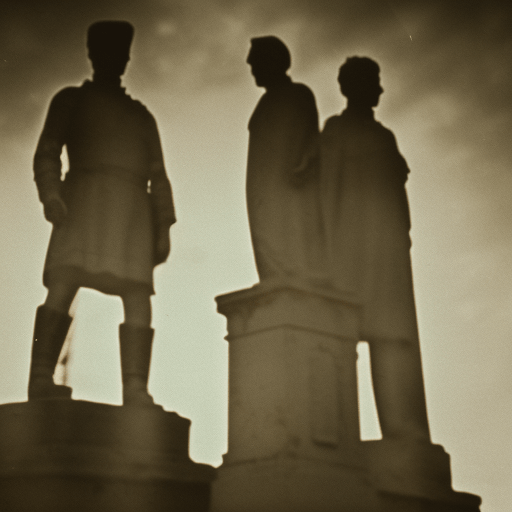Summary:
Julius Caesar was a Roman general and statesman who played a critical role in the transformation of the Roman Republic into the Roman Empire. He was born in 100 BCE into a patrician family and rose to prominence through his military victories and political maneuvering. Caesar’s military campaigns expanded Rome’s territories and brought him great popularity among the Roman people. However, his growing power and ambition led to his assassination in 44 BCE, which ultimately sparked a series of civil wars and the end of the Roman Republic.
Early Life and Rise to Power:
Julius Caesar was born into a noble family in Rome. He received a good education and showed early signs of military and political talent. In 60 BCE, Caesar formed the First Triumvirate with Pompey and Crassus, two other influential Roman politicians. This alliance allowed Caesar to secure the consulship and gain control over Gaul (modern-day France). Over the next decade, Caesar led a series of successful military campaigns, expanding Roman territories and amassing wealth and power.
Civil War and Dictatorship:
Caesar’s growing popularity and influence alarmed many senators, who saw him as a threat to the traditional republican system. In 49 BCE, the Senate ordered Caesar to disband his army and return to Rome. Instead, Caesar crossed the Rubicon River with his army, an act considered treasonous, and marched towards Rome. This action marked the beginning of a civil war between Caesar’s forces and those of the Senate.
Caesar emerged victorious in the civil war and was appointed as dictator for life in 44 BCE. As dictator, Caesar implemented a series of reforms aimed at addressing social and economic issues in Rome. He granted Roman citizenship to many non-Roman residents, reformed the calendar, and initiated public works projects to provide employment. Despite these reforms, Caesar’s increasing power and his desire to be seen as a king-like figure worried some senators, leading to a conspiracy against him.
Assassination and Aftermath:
On March 15, 44 BCE, a group of senators led by Brutus and Cassius assassinated Julius Caesar in the Senate chamber. The conspirators believed that by killing Caesar, they would restore the traditional republican system. However, their actions instead plunged Rome into further chaos and instability. Caesar’s death sparked a power struggle between his supporters, led by Mark Antony, and the conspirators, who sought to maintain their influence.
The power struggle culminated in the Battle of Philippi in 42 BCE, where the forces of Antony and Octavian (Caesar’s adopted heir) defeated the conspirators. Octavian emerged as the sole ruler of Rome, and together with Antony and Lepidus, formed the Second Triumvirate. This alliance allowed Octavian to consolidate his power and eventually become the first Roman Emperor, taking the name Augustus.
Julius Caesar’s legacy is significant and far-reaching. His military campaigns expanded Rome’s territories to their greatest extent, and his political reforms laid the foundation for the Roman Empire. Caesar’s assassination marked the end of the Roman Republic and the beginning of the Roman Empire. His name became synonymous with absolute power and dictatorship, and his life and death continue to be studied and debated by historians to this day.












